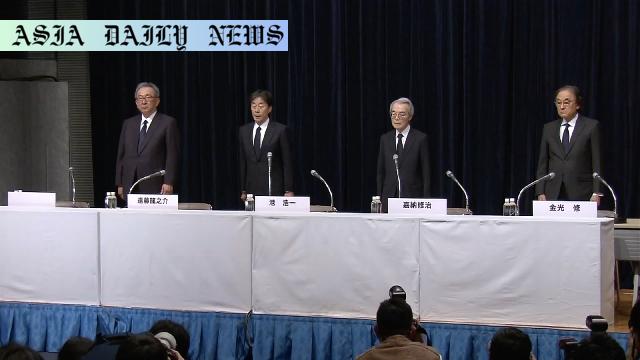Fuji TV Scandal: Vice Chairman Endo Ryunosuke announces intent to step down amid investigation into Nakai Masahiro-related issue.
Fuji TV Vice Chairman Endo Ryunosuke announces resignation following scandal involving employee and TV personality Nakai Masahiro.
Scandal has led to resignations of Fuji TV President and Chairman, with leadership shakeup set for March post-investigation.
Independent third-party panel has been formed to investigate the allegations; report expected by end-March.
Fuji TV faced extensive media scrutiny during a 10-hour press conference with over 400 attendees, broadcast live in Kanto.

Overview of the Fuji TV Scandal
Fuji Television Network, one of Japan’s major broadcasting companies, is facing a leadership crisis following allegations surrounding an employee’s involvement in a controversial incident tied to Nakai Masahiro, a former member of the pop idol group SMAP. This scandal has sparked major resignations among top executives and an ongoing investigation to uncover the details.
Resignations of Top Executives
In the wake of this controversy, Vice Chairman Endo Ryunosuke, the latest executive to announce his intent to resign, has followed the lead of President Minato Koichi and Chairman Kanoh Shuji. Endo stated his intention to step down after the findings of an independent third-party panel are released by the end of March. Having joined Fuji TV in 1981 and having served as its president from 2019–2021, Endo now aims to take accountability for the incident.
Formation of an Independent Investigation Panel
To address the issue transparently, the parent company of Fuji TV formed a third-party independent investigation panel. The role of this panel is to delve into the allegations and to provide a comprehensive report by the end of March. The scandal reportedly surfaced when weekly magazines highlighted an incident involving a Fuji TV employee and Nakai Masahiro, raising questions about company oversight and employee conduct.
Leadership Shakeup and Transition
This leadership crisis underscores the tremendous pressure on Fuji TV to rehabilitate its public image. Endo noted that the broadcaster’s new leadership would serve in the interim, while decisions regarding other executives would follow after the investigation and their respective obligations are met. The outcome of this probe will likely be pivotal to shaping the channel’s credibility moving forward.
Massive Media Scrutiny
The scandal and subsequent resignations attracted unprecedented media attention. Fuji TV hosted a 10-hour press conference that brought together 437 people from 191 media organizations worldwide. The press event, which lacked commercial interruptions, was televised primarily in the Kanto area, including Tokyo, further reflecting the gravity of the situation.
Impact on Fuji TV’s Credibility and Industry
This incident marks a significant blow to Fuji TV’s reputation. Questions about supervisory responsibilities and the company’s approach to crisis management remain critical concerns. The findings from the independent investigation will play an essential role in determining the trajectory of both employee accountability and corporate governance within the organization.
What Lies Ahead for Fuji TV?
As the March deadline for the panel’s report approaches, the actions taken by both existing and interim leadership will be closely scrutinized. Should the investigation reveal systemic issues within Fuji TV, the consequences could potentially extend beyond resignations, influencing broader operational or policy reforms in Japan’s broadcasting industry.
Fuji TV’s efforts to confront the situation head-on by broadcasting the lengthy press conference and investigating the issue suggest intent to foster transparency, but whether this will suffice to restore public trust remains uncertain.
Commentary
A Leadership Crisis with Long-Lasting Implications
The unfolding Fuji TV scandal has once again highlighted the fragility of public trust and the significant role media organizations play in maintaining professional and ethical standards. The high-profile resignations, including that of Vice Chairman Endo Ryunosuke, coupled with the establishment of an independent panel, reflect how grave the situation has become for Fuji TV.
The Importance of Transparency in Media
Transparency is essential in addressing a crisis of this magnitude, and Fuji TV’s decision to host an extensive 10-hour press conference exemplifies an effort to respond to public concern. However, transparency must also include thorough accountability measures. The ongoing investigation will be a key determinant in demonstrating the company’s commitment to addressing any wrongdoings and reinforcing ethical standards within the organization.
Bigger Questions for Media Governance
This issue is not just about individual accountability but about systemic practices within Fuji TV that allowed such incidents to occur. As one of Japan’s premier broadcasters, Fuji TV’s actions set a precedent for the broader media landscape in the country. The outcome of this scandal could serve as a critical case study for improving governance practices, not just within Fuji TV but across the entire industry.
In conclusion, while the immediate focus remains on the resignations and the independent investigation, the long-term outcomes will depend on how effectively the organization addresses its internal shortcomings and rebuilds public trust. The path to redemption will be challenging, but it is a necessary one for Fuji TV to regain its standing as a respected broadcaster.


